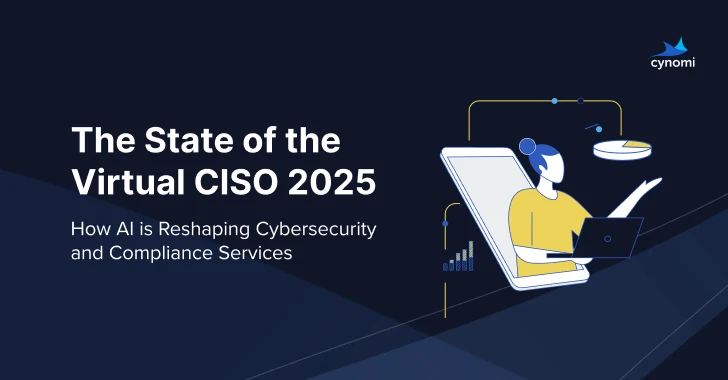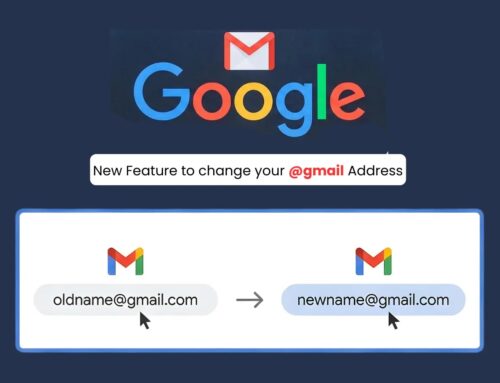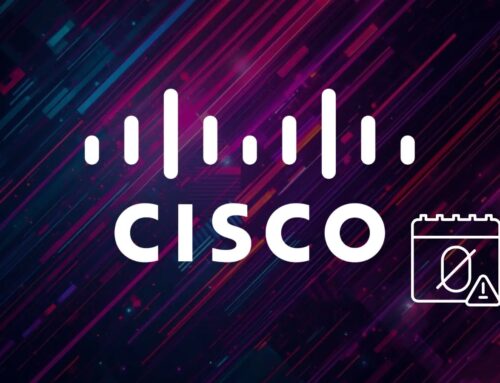
AI Slashes Workloads for vCISOs by 68% as SMBs Demand More – New Report Reveals
The cybersecurity landscape intensifies daily. As threat actors refine their tactics and regulatory demands burgeon, businesses, particularly Small and Medium-sized Businesses (SMBs), find themselves navigating a precarious digital realm. The cost of a breach or non-compliance can be catastrophic, pushing many to seek external expertise. This pressing need has fueled an unprecedented demand for Virtual Chief Information Security Officer (vCISO) services. A groundbreaking new report from Cynomi, referenced by The Hacker News, reveals a significant shift in how these critical services are being delivered and optimized: AI is now dramatically reducing vCISO workloads, enhancing efficiency, and meeting escalating SMB demands head-on.
The Surging Demand for vCISO Services Among SMBs
Cyber threats are no longer abstract concepts; they are tangible, potent risks impacting organizations of all sizes. For SMBs, often lacking in-house cybersecurity departments or the budget for a full-time CISO, the challenge is particularly acute. The imperative to protect sensitive data, maintain operational continuity, and adhere to a complex web of compliance frameworks (like GDPR, HIPAA, or ISO 27001) has elevated cybersecurity to a mission-critical function.
The Cynomi report underscores this urgency. A staggering 79% of Managed Service Providers (MSPs) and Managed Security Service Providers (MSSPs) report high demand for vCISO services among SMBs. This isn’t merely a trend; it reflects a fundamental realization within the SMB sector that expert, consistent cybersecurity guidance is indispensable for survival and growth in the modern digital economy.
AI: The Game Changer for vCISOs
Responding to this burgeoning demand while maintaining service quality and profitability presented a significant challenge for MSPs and MSSPs. Traditional vCISO engagements, while valuable, are resource-intensive, requiring extensive manual assessments, policy development, risk analysis, and continuous monitoring. This is where Artificial Intelligence (AI) emerges as a transformative force.
The core finding of the Cynomi report is nothing short of revolutionary: AI slashes workloads for vCISOs by an astonishing 68%. This dramatic reduction is not about replacing human expertise but augmenting it, allowing vCISOs to operate with unprecedented efficiency and scale. Consider the implications: a vCISO can now potentially serve a greater number of clients, dedicating their invaluable human judgment and strategic oversight to tasks that truly require it, rather than being bogged down by repetitive or data-intensive processes.
How AI Empowers vCISOs
AI’s impact on vCISO operations is multifaceted, touching upon various aspects of cybersecurity management:
- Automated Risk Assessments: AI can rapidly ingest and analyze vast quantities of data from network logs, vulnerability scanners, and threat intelligence feeds to identify and prioritize risks with far greater speed and accuracy than manual methods. This accelerates the initial posture assessment, allowing vCISOs to quickly understand a client’s risk profile.
- Policy Development and Compliance Mapping: AI-powered tools can assist in generating tailored security policies and procedures, automatically mapping them to relevant compliance frameworks. This significantly reduces the time and effort traditionally spent on documentation and ensuring regulatory adherence.
- Threat Intelligence and Alert Triage: AI algorithms can process and correlate real-time threat intelligence, helping vCISOs to identify emerging threats relevant to their clients’ specific environments. Automated alert triage filters out noise, allowing human analysts to focus on legitimate, high-priority incidents.
- Vulnerability Management Optimization: By integrating with vulnerability scanners and asset management systems, AI can help prioritize patching efforts based on exploitability, business impact, and asset criticality, moving beyond simple CVSS scores. For instance, AI could quickly identify if a vulnerability like CVE-2024-XXXXX (placeholder for a future critical vulnerability) specifically impacts critical assets, prompting immediate action.
- Reporting and Communication: AI can streamline the generation of comprehensive security posture reports, compliance summaries, and remediation progress updates, freeing up vCISOs to engage in more strategic client discussions.
Implications for MSPs and MSSPs
For service providers, the AI-driven efficiency gain presents a significant competitive advantage:
- Scalability: Serve more SMB clients without proportionally increasing staff, directly addressing the 79% demand reported.
- Cost-Effectiveness: Reduce operational overheads, potentially leading to more competitive pricing for vCISO services.
- Enhanced Service Quality: Faster, more accurate assessments and proactive threat management lead to stronger security postures for clients.
- Talent Optimization: Empower existing vCISO teams to focus on high-value strategic consulting, incident response, and complex problem-solving, rather than mundane tasks.
Remediation and Strategic Adoption
For SMBs considering vCISO services, and for MSPs/MSSPs looking to integrate AI, strategic adoption is key:
- For SMBs:
- Define Your Needs: Clearly articulate your cybersecurity challenges, compliance requirements, and risk tolerance before engaging a vCISO.
- Inquire About AI Integration: When evaluating vCISO providers, ask about their use of AI-powered tools and how these tools contribute to efficiency and effectiveness.
- Focus on Strategic Partnership: A vCISO, particularly one empowered by AI, should be a strategic advisor, not just a technical implementer.
- For MSPs/MSSPs:
- Pilot AI Solutions: Start with specific, well-defined use cases for AI integration (e.g., automated risk assessment, policy generation).
- Train Your Team: Ensure your vCISOs and security analysts are adept at leveraging AI tools effectively and understand their limitations.
- Maintain Human Oversight: AI is a powerful assistant, but human judgment, ethical considerations, and strategic decision-making remain paramount.
- Stay Updated: The AI landscape evolves rapidly. Continuously assess new AI capabilities and integrate them where appropriate.
Conclusion: The AI-Powered Future of vCISO Services
The confluence of escalating cyber threats, increasing compliance burdens, and the immense potential of Artificial Intelligence is reshaping the cybersecurity services market. The Cynomi report’s finding that AI can reduce vCISO workloads by 68% is a clear indicator of a new paradigm. This efficiency gain is not merely a convenience; it’s a critical enabler for MSPs and MSSPs to meet the overwhelming 79% demand for vCISO services from SMBs, fundamentally democratizing access to high-level cybersecurity expertise. As SMBs continue to prioritize their digital defenses, AI-powered vCISO services will be instrumental in safeguarding their operations, reputations, and futures in an increasingly hostile digital world.





